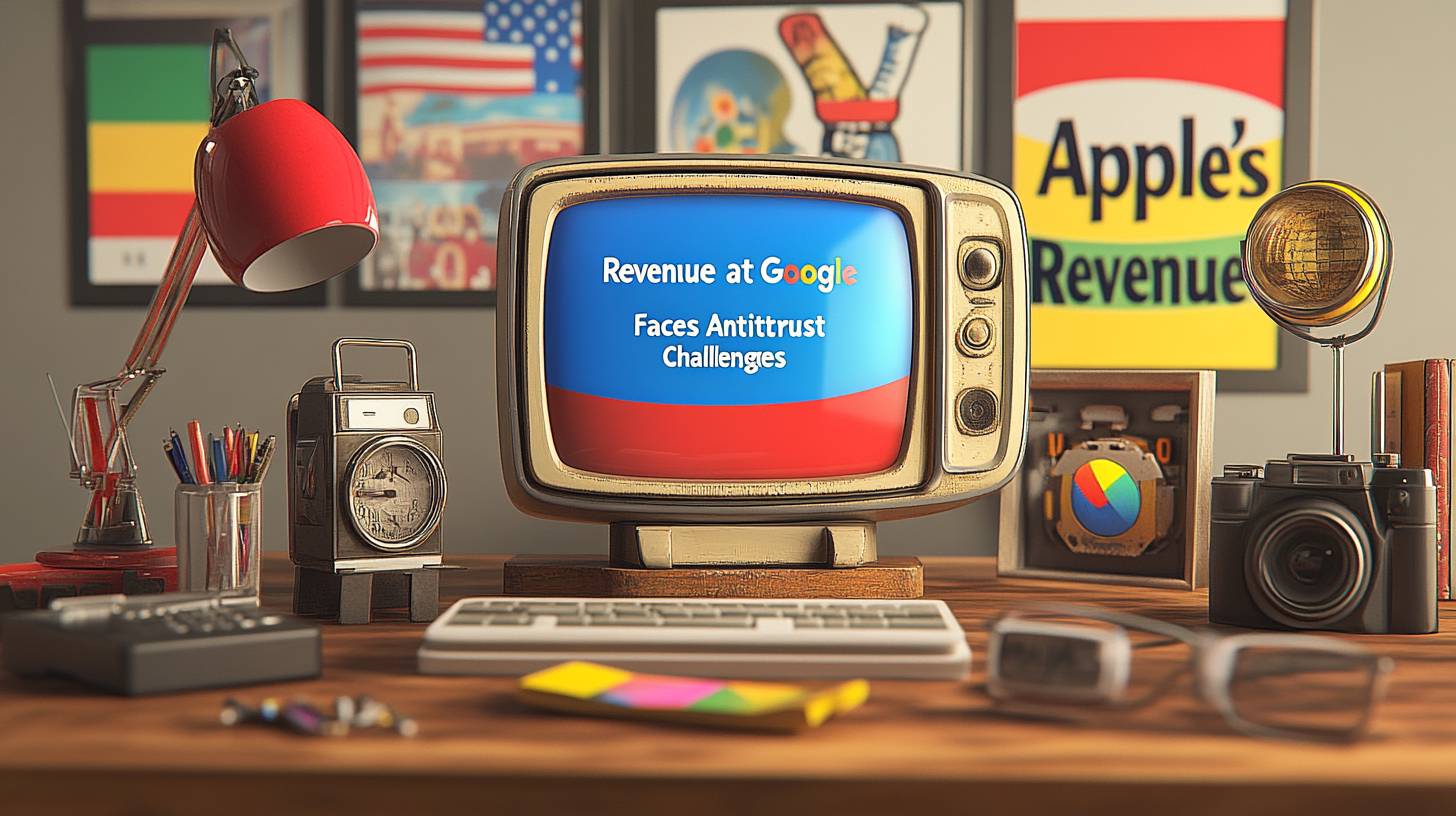
Financial Threats for Apple in Light of Google’s Antitrust Issues
Apple’s profitable relationship with Google is under increasing examination as U.S. authorities ramp up their antitrust investigation against the technology company. This arrangement, wherein Google compensates Apple between billion and billion each year to keep its search engine as the preset option on iPhones and other Apple products, represents a considerable 14% to 16% of Apple’s yearly operating profits, per Bernstein analysts.
Nonetheless, this revenue source is now in jeopardy. The U.S. Department of Justice (DOJ) is advancing its case, contending that Google’s default position on Apple devices suppresses competition by restricting chances for alternative search engines. If the DOJ is successful, it may compel Google to end its exclusivity deal with Apple, jeopardizing a significant segment of Apple’s Services income.
Analyst Edison Lee from Jefferies has cautioned that a win for the DOJ might lead to Apple forfeiting up to one-third of its Google revenue in the U.S. by FY28. This would equate to an 8% decrease in Apple’s discounted cash flow (DCF) projection, or roughly per share. While the immediate effects would primarily impact the U.S., a ruling unfavorable to Google could trigger international regulators to implement similar antitrust actions.
Apple’s Services sector, which encompasses earnings from its agreement with Google, achieved a record .2 billion in fiscal Q3, propelled by robust growth in cloud, payment, and advertising services. However, the potential elimination of Google’s payments could leave a substantial void in this revenue source, particularly if foreign regulators start taking action.
In spite of these issues, analysts continue to concentrate on other short-term catalysts for Apple, such as the upcoming iPhone 16 and the expected introduction of Apple Intelligence. The iPhone remains Apple’s top revenue source, constituting around 46% of the company’s overall sales in the latest quarter.
Outlook for iPhone Demand and the Holiday Season
UBS analysts have conveyed a careful perspective on Apple’s iPhone sales as the holiday season approaches, pointing out modest demand trends. Data tracking across 30 regions, including major markets like the U.S. and China, indicates shorter wait times for the iPhone 16 Pro compared to the previous year. In the U.S., wait times have fallen to 18 days, down from 20 days last year, while in China, the wait has shortened to 17 days from 21 days.
UBS anticipates iPhone unit growth of 4% for September and a slight 1% for December, suggesting tempered expectations for the holiday shopping period. This muted growth outlook has prompted the firm to maintain a neutral rating on Apple stock, with a price target of 6. Even though the iPhone is a crucial revenue contributor for Apple, representing nearly half of the company’s overall sales, the absence of notable demand increases could impact investor outlook during the critical Q3 and Q4 intervals.
Investors will closely monitor Apple’s fiscal Q4 earnings, which are scheduled to be revealed on October 31. Zacks Investment Research reports that the consensus earnings per share (EPS) prediction for the quarter is .54, rising from .46 in the same period last year. However, with UBS indicating limited room for iPhone growth, attention may pivot to other product segments and services, such as the expected rollout of Apple Intelligence, to foster future expansion.
Despite the cautious outlook for iPhone sales, Apple’s shares have shown strong performance year-to-date, trading at 1.78 as of October 15, equating to a 20.39% increase. Nevertheless, as the holiday season looms and competition in the smartphone arena intensifies, Apple must navigate these challenges with care to sustain its growth path.

